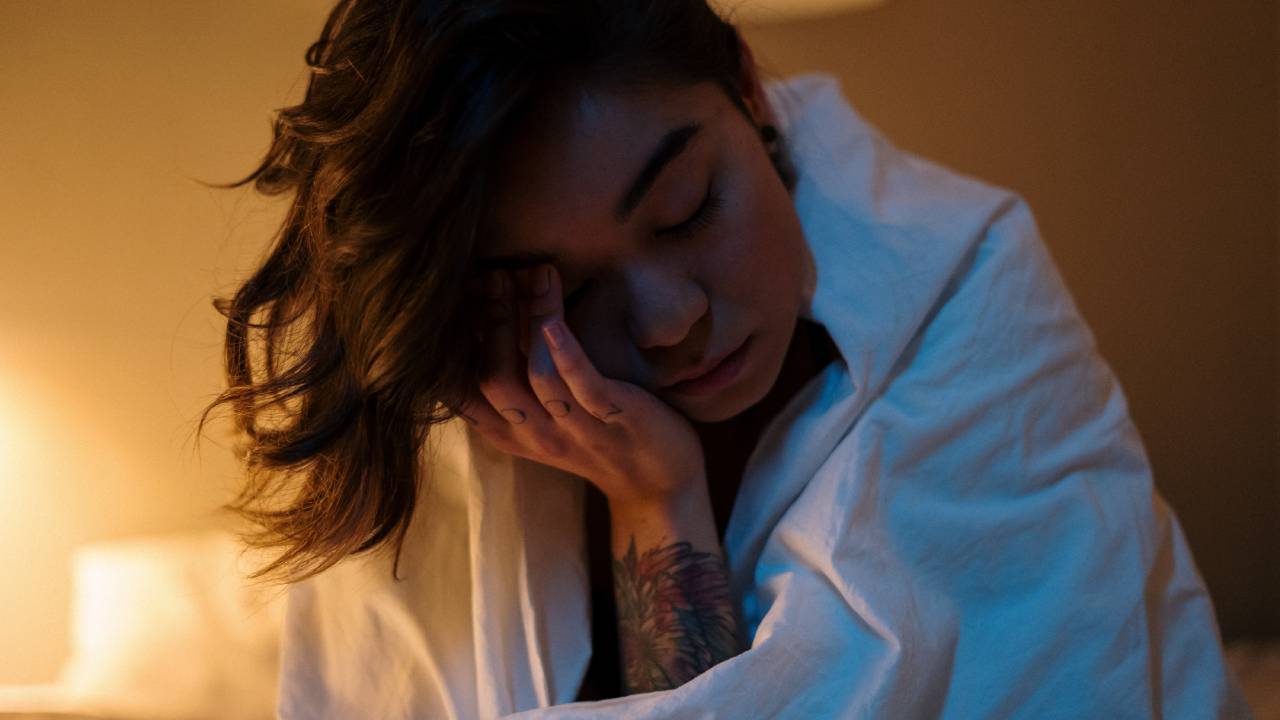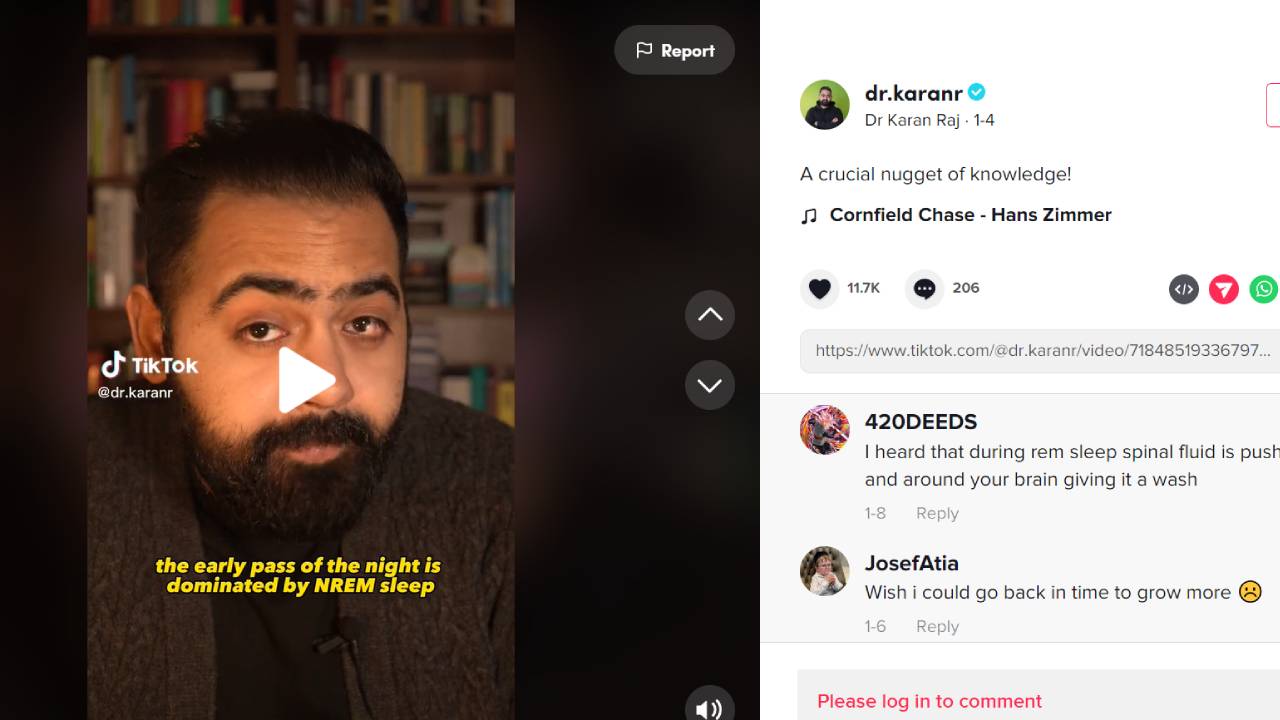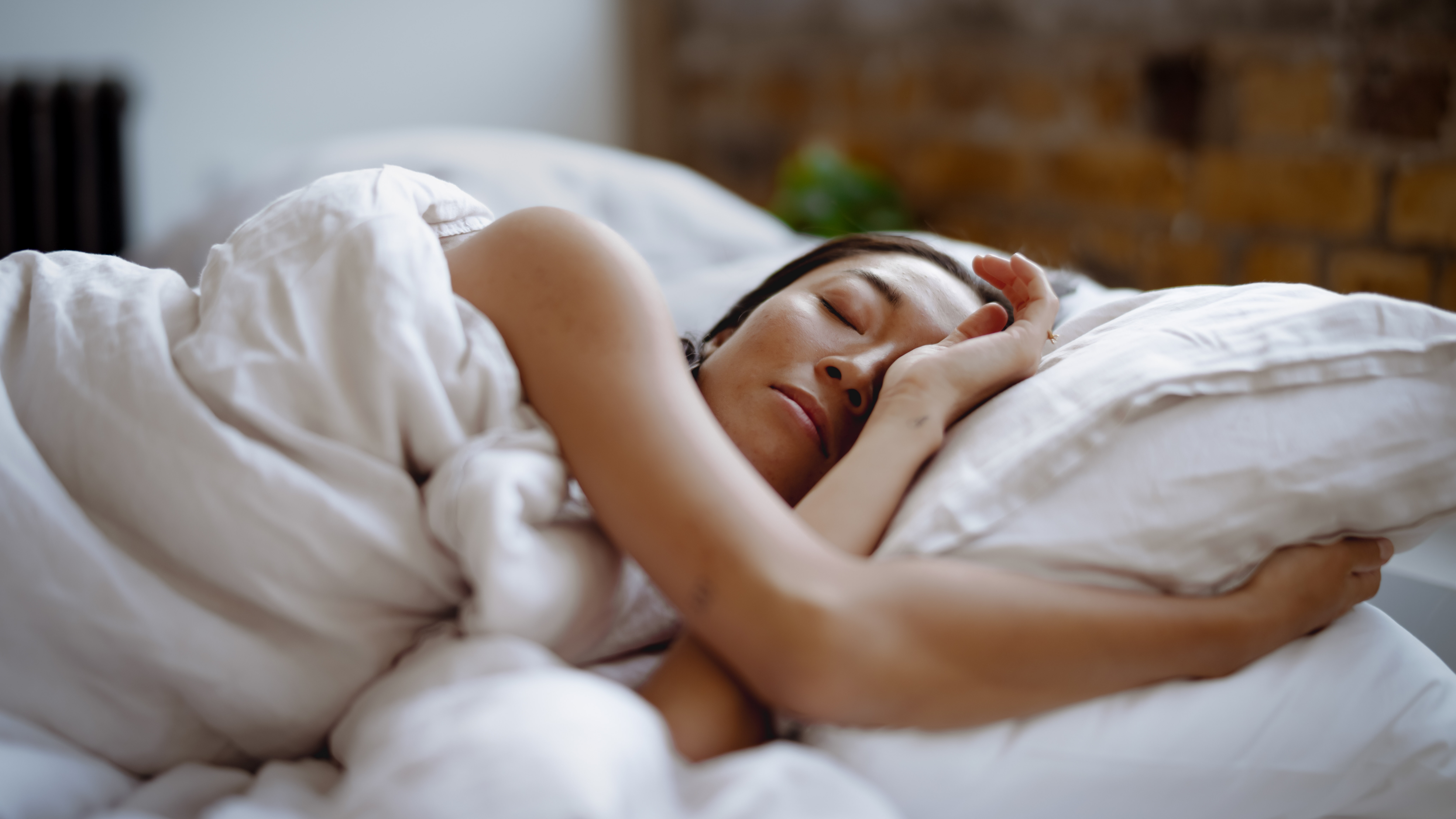

Do you struggle to fall asleep at night? Or maybe you can’t resist staying up to watch one more episode of your favourite TV show. But while you might think it’s not a big deal to delay your bedtime, you could actually be missing out on a very crucial phase of sleep.
For viral sleep hacks, many people are turning to TikTok where doctors like NHS surgeon Dr Karan Raj create content that offers medical advice, sleep tips and debunks health myths. In a recent video from Dr Raj, he explains that by delaying your bedtime, you won’t just feel tired the next day but you could be affecting your hormone production and general health and wellbeing.
The phase Dr Raj is referring to is slow wave sleep. But what is it and why does it matter? Keep reading to find out.
- Set yourself up for sleep success every night with the best mattress
What is slow wave sleep?
Slow wave sleep (SWS) or deep sleep is a period of non-rapid eye movement (NREM) sleep which is characterised by high-amplitude low-frequency waves. This stage of sleep typically happens during the first few hours of sleep and lasts between 70-90 minutes. In Dr Raj’s video, he explains that “the early part of the night is dominated by NREM sleep. This is important because NREM sleep includes the deeper restorative slow wave sleep that’s coupled with the biggest release of growth hormone in your 24 hours.”
The growth hormone (which is produced by the pituitary gland located at the base of the brain) is what fuels childhood growth and maintains your body’s organs and tissues throughout your life, according to Mayo Clinic. Around 70% of this hormone comes from the slow wave sleep stage which is why it’s so important to make sure you’re not delaying your bedtime.

But why? Dr Raj explains that “as the night goes on, the ratio of NREM to REM sleep changes and you get progressively less NREM and more REM sleep. If you cut short your bedtime, you cut the short time you spend in slow wave sleep and so you get less of that growth hormone.”
And that’s not all – it turns out that as we get older, we start to get less slow wave sleep. “Into your 30s and 40s, the total amount of growth hormone release in 24 hours decreases as does the amount of slow wave sleep.” What this means is that by wasting time scrolling on your phone or staying up for an hour or more longer than you normally do, you’re reducing or cancelling out entirely the amount of growth hormone your brain releases and your body receives.
Sign up to the T3 newsletter for smarter living straight to your inbox
Get all the latest news, reviews, deals and buying guides on gorgeous tech, home and active products from the T3 experts
This hormone is particularly important for children and teenagers to continue growing but as you get older, a lack of this growth hormone is not only a sign of aging but it can affect your body fat, aerobic capacity, and muscle and brain mass. As stated in his video, Dr Raj says that this is why it’s important to go to bed at a similar time every day, so you get every bit of that growth hormone.
In general, having a set bedtime routine is a sign of good sleep hygiene, so you should be aiming to do this anyway, to ensure you have the best night’s sleep and wake up the next day feeling refreshed and motivated.

Beth is Home Editor for T3, looking after style, living and wellness. From the comfiest mattresses to strange things you can cook in an air fryer, Beth covers sleep, yoga, smart home, coffee machines, watches, grooming tools, fragrances, gardening and much more. If it's something that goes in your house, chances are Beth knows about it and has the latest reviews and recommendations! She's also in the know about the latest deals and discount codes from top brands and retailers.
Having always been passionate about writing, she’s written for websites, newspapers and magazines on a variety of topics, from jewellery and culture, to food and telecoms. You can find her work across numerous sites, including Wedding Ideas Magazine, Health & Wellbeing, The Bristol Post, Fashion & Style Directory, TechRadar, CreativeBloq and more. In her spare time, Beth enjoys running, reading, baking and attempting craft projects that will probably end in disaster!
-
 I spent 6 weeks with the FoodMarble Aire 2: here’s what I learned about my gut health
I spent 6 weeks with the FoodMarble Aire 2: here’s what I learned about my gut healthI’ve been testing the clever breath-testing gadget with the companion app over several weeks to find out if it delivers on its promises
By Lee Bell
-
 Oil pulling is going viral on TikTok for stopping morning breath – but does it actually work?
Oil pulling is going viral on TikTok for stopping morning breath – but does it actually work?4 hacks that prevent morning breath, according to a sleep expert
By Bethan Girdler-Maslen
-
 These limited edition McLaren x Loop earplugs are what you need for Formula 1 season
These limited edition McLaren x Loop earplugs are what you need for Formula 1 seasonMcLaren teams up with Loop on limited edition noise-reducing earplugs
By Bethan Girdler-Maslen
-
 5 sleep supplements that help me achieve 8+ hours of rest every night
5 sleep supplements that help me achieve 8+ hours of rest every nightIt took me years to perfect my sleep routine – here are the supplements that helped
By Lizzie Wilmot
-
 3 reasons why you wake up at 3am every night – and how to avoid it
3 reasons why you wake up at 3am every night – and how to avoid itAlways waking up in the middle of the night? This could be why…
By Bethan Girdler-Maslen
-
 This tiny device will automatically disable your distracting apps before you sleep
This tiny device will automatically disable your distracting apps before you sleepSay hello to Kip...
By Lizzie Wilmot
-
 Therabody experts give 7 tips for perfecting your sleep routine for World Sleep Day
Therabody experts give 7 tips for perfecting your sleep routine for World Sleep DayFrom breathing exercises to sleep masks, here’s how to prioritise sleep, according to experts
By Bethan Girdler-Maslen
-
 Loop Dream review: super soft earplugs to help you snooze soundly, even if you’re a side sleeper
Loop Dream review: super soft earplugs to help you snooze soundly, even if you’re a side sleeperSquishy silicone and uniquely shaped ear tips take Loop’s nighttime earplugs to dreamy heights
By Joanna Ebsworth

